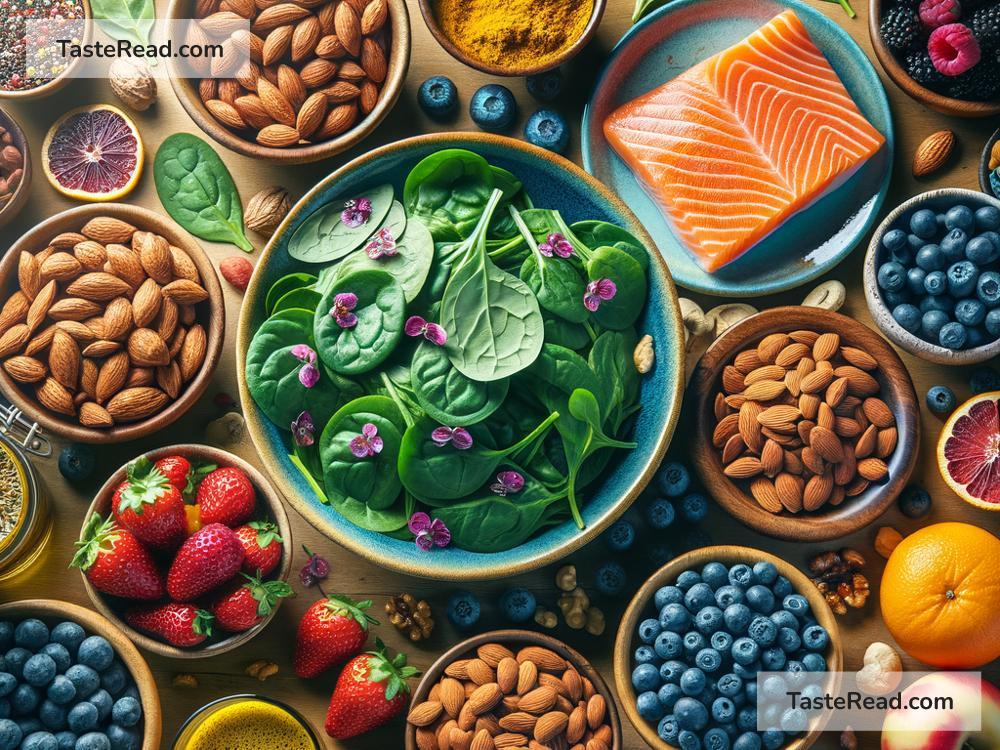Foods for Enhancing Empathy: Eat for a Kinder World
Empathy is the ability to understand and share the feelings of others. It allows us to connect with people, show compassion, and build stronger relationships. While empathy largely depends on mindset and experience, did you know that your diet can also play a role? Certain foods can improve brain health, boost mood, and encourage positive social behaviors—ultimately helping you become more empathetic.
Let’s dive into the connection between food and empathy, and explore how adding specific foods to your day might make your heart a little softer and your mind more open.
How Food Affects Empathy
Empathy isn’t just a personality trait—it’s tied to brain function. The parts of the brain responsible for empathy, like the prefrontal cortex and mirror neuron systems, need proper nutrition to stay sharp. Food affects neurotransmitters like serotonin, dopamine, and oxytocin, which are linked to mood, bonding, and social behavior.
When you eat healthy, your brain is better equipped to feel and process emotions. A well-fed brain can focus on connecting instead of stressing out. On the other hand, a poor diet can lead to irritability, fatigue, and difficulty thinking—making it harder to be empathetic.
7 Foods to Boost Your Empathy
Now that we understand how food influences empathy, let’s look at some specific foods that can help you feel more connected to others.
1. Dark Chocolate (in moderation)
Dark chocolate is not just delicious—it’s good for your brain! It boosts serotonin and endorphins, which are “feel-good” chemicals that improve mood. When you feel happy and relaxed, it’s easier to empathize with others. Plus, dark chocolate contains antioxidants that reduce stress and inflammation, helping your brain function at its best.
2. Walnuts
Walnuts are rich in omega-3 fatty acids, which are essential for brain health. Omega-3s can help reduce anxiety and depression, making it easier to focus on others’ emotions. Walnuts also contain magnesium, a mineral that supports relaxation and calmness—key ingredients for greater empathy.
3. Oats
A bowl of oatmeal can do more than fill your stomach—it can stabilize your mood. Oats release energy slowly, preventing blood sugar spikes that can lead to irritability. High-fiber foods like oats promote a steady flow of nutrients to your brain, helping you stay patient and understanding.
4. Blueberries
Blueberries are packed with antioxidants that protect your brain from stress and improve cognitive function. They’re also known to enhance memory and concentration. Why does this matter for empathy? When your mind is clear, you’re more likely to listen and process the emotions of others effectively.
5. Fermented Foods (like yogurt and kimchi)
Gut health has a surprising impact on mood and social behavior. Fermented foods contain probiotics, which help maintain a healthy gut microbiome. Studies show that a balanced gut can reduce anxiety and promote positive mood—making you feel more open and connected to others.
6. Leafy Greens (like spinach and kale)
Leafy greens are rich in folate, vitamin C, and magnesium—nutrients that reduce stress and improve focus. These vegetables also support the production of dopamine, a neurochemical linked to pleasure and optimism. A brighter mood naturally leads to kinder interactions with people.
7. Avocados
Avocados are full of healthy fats that nourish your brain. They contain vitamin E, which protects brain cells and reduces inflammation. Avocados also help regulate hormones like dopamine and serotonin, promoting a positive mindset. Feeling more calm and balanced can set the stage for greater empathy.
Drink to Boost Empathy
Don’t forget the importance of hydration! Water keeps your brain functioning properly and improves concentration, an essential part of understanding others. Herbal teas like chamomile or green tea can also be soothing and help you stay calm in social situations.
Foods to Avoid
Just as some foods enhance empathy, others can hinder it. Processed snacks, sugary drinks, and fast food tend to cause blood sugar spikes and crashes, leading to mood swings and irritability. Additionally, excessive caffeine and alcohol can cloud judgment and reduce your ability to connect with others.
A Holistic Approach to Empathy
While eating the right foods can support empathy, it’s not a magic solution. True compassion comes from practice and intention. Combine healthy eating with other strategies, such as mindfulness, active listening, and volunteering to create a balanced approach to empathy.
Final Thoughts
The foods you eat don’t just nourish your body—they also influence your mind and emotions. By choosing brain-boosting and mood-enhancing foods, you can lay the foundation for greater empathy in your daily life. Simple choices like snacking on walnuts or adding leafy greens to your meals can make a difference in how you connect with others.
So, the next time you plan your meals, think about how you can eat for empathy. Not only will these foods help your brain and body, but they’ll also help you contribute to a kinder, more understanding world. After all, empathy begins with you—one bite at a time!


